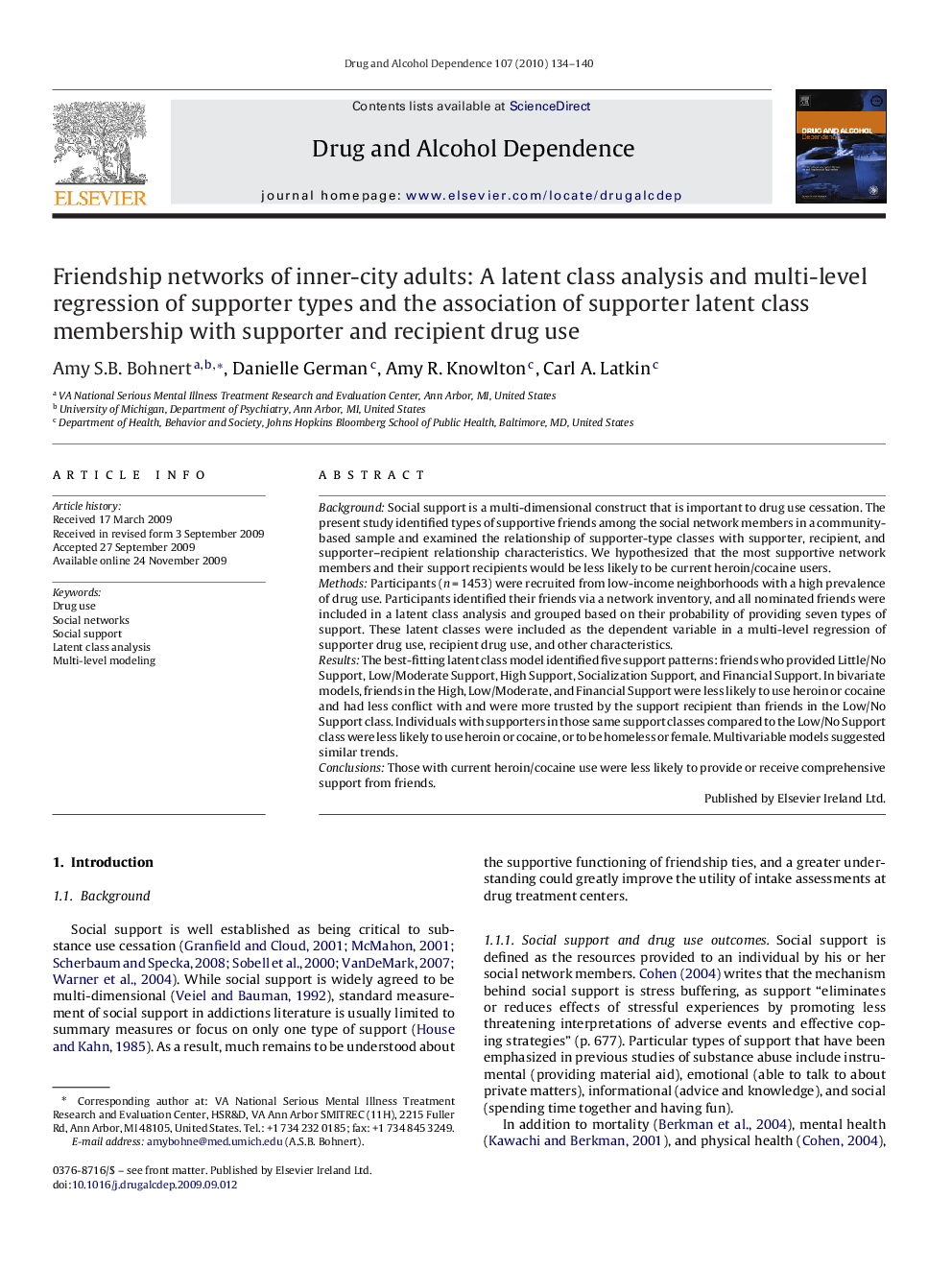| کد مقاله | کد نشریه | سال انتشار | مقاله انگلیسی | نسخه تمام متن |
|---|---|---|---|---|
| 1070466 | 1486184 | 2010 | 7 صفحه PDF | دانلود رایگان |

BackgroundSocial support is a multi-dimensional construct that is important to drug use cessation. The present study identified types of supportive friends among the social network members in a community-based sample and examined the relationship of supporter-type classes with supporter, recipient, and supporter–recipient relationship characteristics. We hypothesized that the most supportive network members and their support recipients would be less likely to be current heroin/cocaine users.MethodsParticipants (n = 1453) were recruited from low-income neighborhoods with a high prevalence of drug use. Participants identified their friends via a network inventory, and all nominated friends were included in a latent class analysis and grouped based on their probability of providing seven types of support. These latent classes were included as the dependent variable in a multi-level regression of supporter drug use, recipient drug use, and other characteristics.ResultsThe best-fitting latent class model identified five support patterns: friends who provided Little/No Support, Low/Moderate Support, High Support, Socialization Support, and Financial Support. In bivariate models, friends in the High, Low/Moderate, and Financial Support were less likely to use heroin or cocaine and had less conflict with and were more trusted by the support recipient than friends in the Low/No Support class. Individuals with supporters in those same support classes compared to the Low/No Support class were less likely to use heroin or cocaine, or to be homeless or female. Multivariable models suggested similar trends.ConclusionsThose with current heroin/cocaine use were less likely to provide or receive comprehensive support from friends.
Journal: Drug and Alcohol Dependence - Volume 107, Issues 2–3, 1 March 2010, Pages 134–140